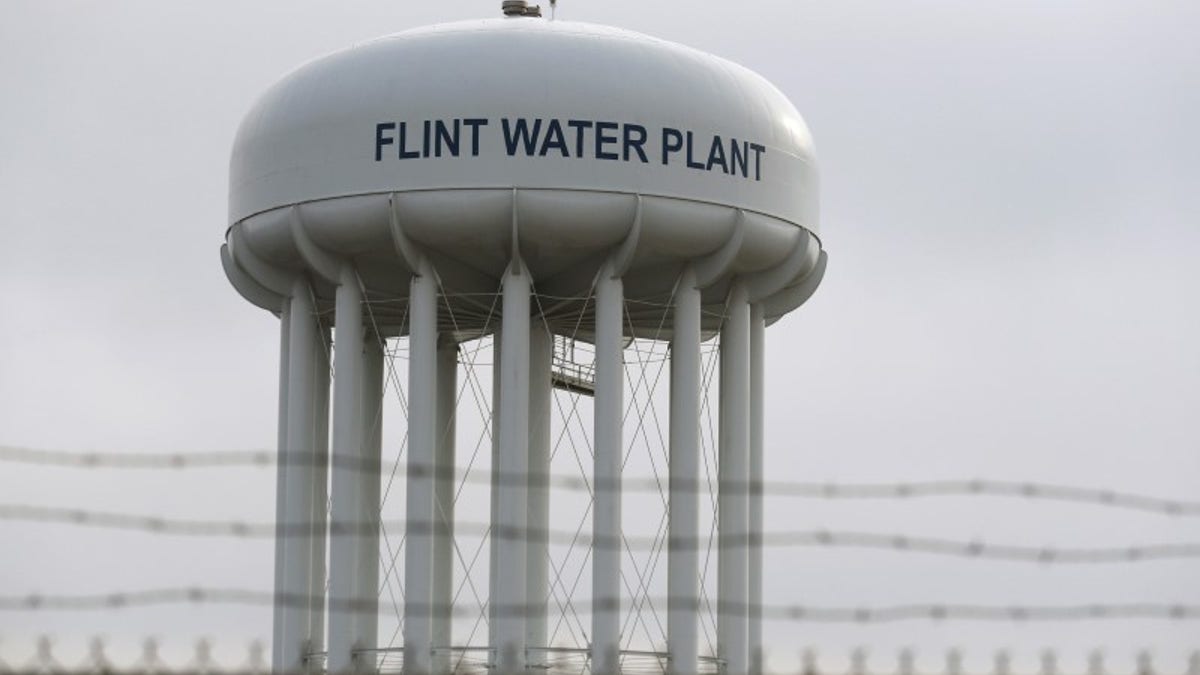
File photo of the top of the Flint Water Plant tower is seen in Flint, Michigan (Copyright Reuters 2016)
DETROIT – Federal officials said on Thursday it is safe for anyone to drink properly filtered water in Flint, Michigan, where a public health crisis erupted after residents were exposed to dangerously high levels of lead.
The U.S. Environmental Protection Agency (EPA) said in a statement that the most recent testing at nearly 50 locations in the city showed lead levels far below the levels considered dangerous.
But the city's mayor said some homes in Flint cannot be fitted with filters, so bottled water is still needed.
Flint, with a population of about 100,000, was under control of a state-appointed emergency manager in 2014 when it switched its water source from Detroit's municipal system to the Flint River to save money. The city switched back in October.
The river water was more corrosive than the Detroit system's and caused more lead to leach from aging pipes. Lead can be toxic, and children are especially vulnerable. The crisis has prompted lawsuits by parents who say their children have shown dangerously high levels of lead in their blood.
The EPA, which worked in coordination with the U.S. Centers for Disease Control (CDC) in the testing, said properly filtered water is safe even for pregnant and nursing women, and children, groups more susceptible to the effects of lead poisoning.
"Residents can be confident that they can use filtered water and protect their developing fetus or young child from lead," U.S. Department of Health and Human Services Assistant Secretary Dr. Nicole Lurie said in a statement. Lurie has led federal support efforts for the Flint crisis.
The EPA said the filters distributed by the state of Michigan effectively remove lead or reduce it to levels well below the level of 15 parts per billion at which federal officials say action is needed. In the testing, nearly all filtered water tested below 1 part per billion. In January, water samples tested above 150 parts per billion.
The state began offering free water filters in Flint in January.
"This good news shows the progress we are making with overall water quality improving in Flint," Michigan Governor Rick Snyder said in a statement.
Snyder has been criticized for the state's poor handling of the crisis.
Flint Mayor Karen Weaver noted that some homes have faucets where the filters do not fit. "This is not the ultimate solution," she said in a statement. "We still need new infrastructure, replacing the lead-tainted pipes in the city remains my top priority."




















